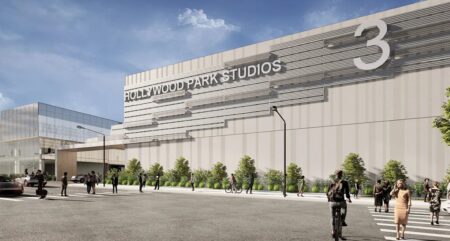The capacity of Go Media Stadium will be increased for the upcoming A-League Finals Series due to strong ticket demand among Auckland FC fans.
In partnership with Go Media Stadium and Auckland FC, the Australian Professional Leagues (APL) has added 2,700 seats to the north end of the venue ahead of the team’s semi-final second leg on May 24.
Auckland FC finished top of the regular-season table in its first A-League campaign to qualify for the semi-final stage of the Finals Series. The team has been drawn against Melbourne Victory in the two-legged semi-final, with the first leg to take place at AAMI Park on May 17.
If Auckland FC progresses to the grand final on May 31, an extra 800 seats will be added to Go Media Stadium, which has a regular capacity of 25,000.
Auckland FC’s 13 home games during the regular season attracted a total of 235,316 fans – a league-high average of 18,101 fans per game. The A-League has recorded a 9% growth in overall attendance this season.
A-Leagues executive chair Stephen Conroy said: “The fans in Auckland, and across the league, have been fantastic this season. As it stands, we’re on track to record the highest attended season since 2016-17. As we enter an exciting month of A-Leagues action, itʼs great to be able to increase the overall capacity at Go Media Stadium for the 2025 Finals Series to give more fans the chance to see their team in action.”
Auckland FC is owned by US businessman Bill Foley, who also owns Premier League club AFC Bournemouth and the NHL’s Vegas Golden Knights. Ahead of its debut season in the A-League, Auckland FC reached a deal to play home games at Go Media Stadium for at least its first five years of competition.
Earlier this month, Auckland Council voted to consult the public on two proposals for the redevelopment of Western Springs Stadium, with one of the options calling for a multi-purpose precinct that would be anchored by a 12,500-seat stadium.
The first option, dubbed Auckland Arena, will feature a football stadium that could be used by Auckland FC. The 12,500-seat stadium would be expanded up to a capacity of more than 25,000 for concerts.





